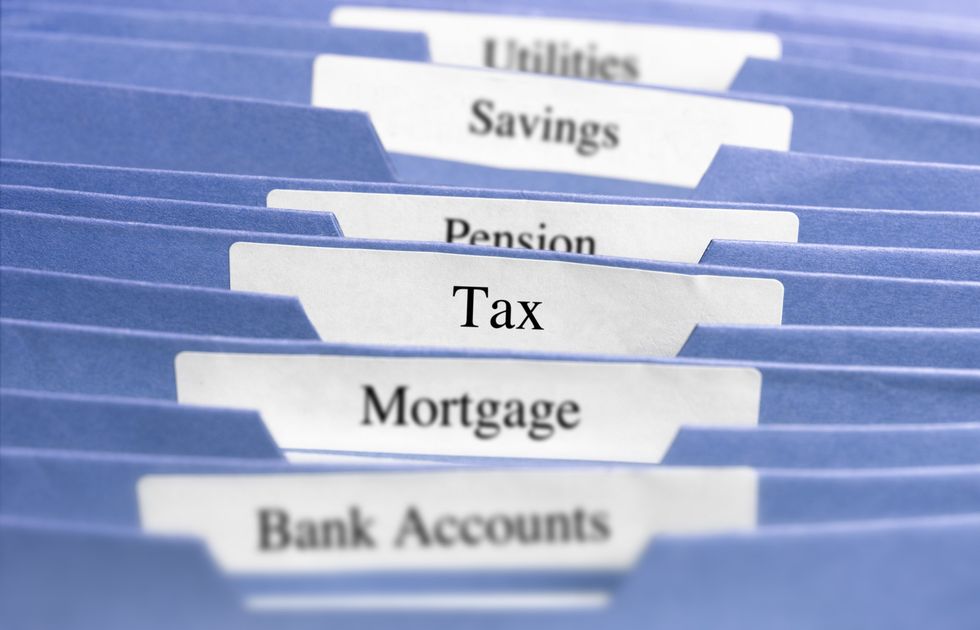The tax changes announced in the Scottish Budget yesterday are expected to raise £24.6bn in 2025/2026
GETTY
The tax changes announced in the Scottish Budget yesterday are expected to raise £24.6bn in 2025/2026
Don't Miss
Most Read
Trending on GB News
Millions of Scottish taxpayers face "more tax misery" as the Government announces changes to income tax bands for 2025/26.
While basic and intermediate income tax bands will increase by 3.5 per cent, thresholds for higher earners are set to remain frozen, deepening the tax burden for those on larger salaries.
Millions of Scottish taxpayers face a growing tax divide with the rest of the UK as the Government announces changes to income tax.
The changes mean around 1.5 million people earning more than £28,850 will continue to pay more income tax than their counterparts elsewhere in Britain.
The move further widens the gap between Scotland's six-band tax system and the three bands used in England, Wales and Northern Ireland.

The move further widens the gap between Scotland's six-band tax system and the three bands used in England
GETTYUnder the new system, earnings up to £12,570 will remain tax-free across the UK. In Scotland, earnings between £12,571 and £15,397 will be taxed at 19 per cent, while those between £15,398 and £27,491 face a 20 per cent rate.
The intermediate band of £27,492 to £43,662 will be charged at 21 per cent, with a 42 per cent rate applying to earnings between £43,663 and £74,999.
Scottish taxpayers earning £75,000 to £125,140 will pay 45 per cent, with the highest rate of 48 per cent for income above £125,140.
In contrast, the rest of the UK maintains just three bands, with a 20 per cent basic rate up to £50,270, 40 per cent up to £125,140, and 45 per cent thereafter.
Sarah Coles, head of personal finance at Hargreaves Lansdown warned that higher earners are "stepping in to fill the Government's coffers in Scotland."
While Scottish taxpayers enjoy benefits like free prescriptions and no tuition fees for Scottish students, "they're picking up the bill for this with higher taxes - particularly among those who earn more."
"The freezes for higher earners pile more tax misery on an already hefty burden," she said.
However, she suggests alternative ways people can shield their savings.
She said: "Tax free allowances including ISAs and SIPPs can play an essential role in keeping your tax bill down, rather than having to consider anything more drastic."
The tax divide is creating recruitment challenges for Scotland's financial services sector, industry experts warn. Paul Frame, regional managing partner for Scotland at Evelyn Partners, highlights how the three per cent tax difference with England affects hiring.
He said: "If we want them to come into the office in Scotland, they say it is too far to travel, but won't move nearer as it would mean extra taxes.
"They tell us if we want them to move to Scotland, then we have to increase their pay, as otherwise it would be a pay cut."
Shona Robison, Scotland's Finance Secretary announced that Scottish taxes will raise £24.6bn in 2025/2026, representing a £777mn increase from December 2023 forecasts.
"Overall, the tax decisions that we have taken have delivered £1.7bn more in 2025/26 than if we had followed UK policies," Robison stated.
She thanked, "those with the broadest shoulders who are paying a little bit more."
Coles added: "The changes today will ease the tax burden for those further down the income spectrum, because by increasing the thresholds, it will protect them from the horrors of fiscal drag, which pushes more people over tax thresholds with each pay rise."







